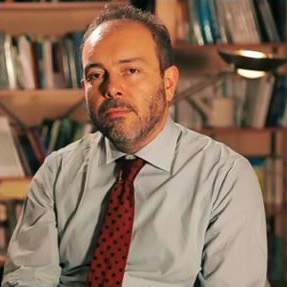Reshaping pharmaceutical marketing: patients are the engine

Pharmaceutical Sales Representative is changing.
The patient changes the Pharmaceutical Sales Representative, the transformation passes to the doctor and then to the industry, not the reverse (unfortunately).
Technology has changed traditional publishing
The rise of new technologies has generated a continuous series of changes in the reader's behaviour, which has been followed by the transformation of publishing. The reader has found other ways to acquire information or, if you like, culture. The possibility to deliver culture as a digital service has created a complete disruption that publishers are struggling to follow.
Change in the health sector
It is very likely that the same transformation is taking place in the area of health and in particular in the way we obtain health information. On the surface, we still treat ourselves in the same way: we buy drugs and supplements, yet our approach to choice of doctor, treatment and hospital facility, and the search for information in general, is constantly changing. This is the bias that confuses pharmaceutical companies: they continue to sell drugs - and will continue to do so - but the driver of choice has already largely passed to another hand.
Mdlive, which carried out a survey in the US among patients 'who have a doctor', offers news that can help us read this change. The majority of participants replied that they preferred a "remote" or mobile visit to a "face-to-face" visit for several reasons, including the need to avoid wasting time and waiting in the waiting room. "The study shows that Telehealth today is not limited to the demand for access to quality care, anytime, anywhere, but that the industry is already at a transition point, where the adoption of new models among the younger generation will drive demand among both consumers and young professionals, who will become the new workforce."
The role of Pharmaceutical Sales Rep in Italy
The Pharmaceutical Sales Rep is increasingly an instrument of cultural intermediation in pharmaceutical marketing in Italy , in a world crowded with information, and its role is to be a facilitator of communication to the professional.
Cultural intermediation arises from information pressure no longer from companies but directly from the internet. Why should the doctor prefer face-to-face information when he can receive it conveniently online, as patients do? According to GSK Eurisko's analysis "Digital Doctor Communication 2012" more than 90% of specialists and 80% of GPs regularly update themselves on the internet and this figure is further increasing. According to the same research, 41% of respondents consider the pharmaceutical sales representative visit useful, while even 70% of them consider the internet useful as a source of scientific information and updates. What should make us reflect on the coming disruption is that, according to the white-collar workers interviewed, 12% of the total information they receive about their professional activity comes from ISFs and 16% from the internet.
The role of the Pharmaceutical Sales Rep is changing, but it is not a change that comes from the company: it is the patients and professionals who promote it and induce Pharmaceutical Sales Rep in Italy to update. There are many channels that allow information to pass between the industry and the doctor, and the Pharmaceutical Sales Rep is one of them.
The monopoly of pharmaceutical companies
Until recently, the pharmaceutical company had control over the dissemination of information and its distribution, transmission and promotion through investment in scientific information and conferences. Now this monopoly of the communication channel, due to the technological changes of the internet, is no longer usable and pharmaceutical marketing in Italy has to take this into account. If the promotion of scientific information takes place in ways that the doctor finds slow and uncomfortable, the impact of the information itself changes. This requires a change based on new technologies.
Companies must take these changes into account when investing in sending Pharmaceutical Sales Rep in Italy into the field: today, sending them out with only a visual that talks about the product is the equivalent of sending them onto a battlefield with bows and arrows, while the enemy has chemical weapons. At Merqurio we are facing a great challenge: to give each doctor the right relationship mode for his requirements and for the characteristics of the product. Less effort, less inertia, greater effectiveness.
But the current challenge is "how much" we can explain of the multichannel pharmaceutical marketing model. Because the problem is not finding new channels or how to use them, but explaining the new grammar to those who use them. In your role in the company, how are you experiencing this transformation?

Salvatore Ruggiero
Salvatore Ruggiero nasce a Napoli nel 1964, si definisce un imprenditore seriale. Oggi a capo del gruppo Merqurio, di cui è stato anche fondatore. Sposato con Giuseppina, ha due figli e nel tempo libero, tra un'escursione e un'altra, tra un film ed un altro, è alla ricerca della ricetta dei biscotti perfetti.
